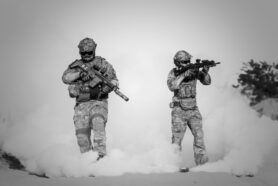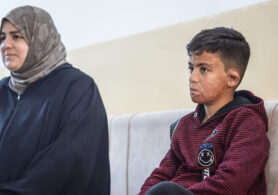Airwars has published an overview of the new civilian harm reporting procedures announced by Dutch defence minister Ank Bijleveld.
In a June 29th letter to Parliament, Bijleveld set out out changes which she claimed would improve transparency and accountability in Dutch military operations. This follows months of debate over Dutch responsibility for an airstrike on Hawija, Iraq, which is estimated to have resulted in 70 civilian casualties.
From now on, Bijleveld declared the Dutch Red Card Holder in military operations must proactively request information regarding future airstrikes in order to avoid breakdowns in communication. Furthermore, the MoD is to complete its internal reporting on civilian harm in the second half of 2020.
Will these new developments allow the Netherlands to shed its reputation as one of the least transparent members of the anti-IS coalition? Concerns remain. Project Leader Lauren Gould is quoted in the article:
“This is history just repeating itself: the Minister uses the catchphrase ‘national, operational and personnel security’ and is exempt from being transparent or being held to account for a lack of transparency. It should be clearly defined when the parliament finds it acceptable that a minister does not inform the broader public. The minister will have to prove that these exceptional circumstances are at play.”
“Furthermore, the question remains: what information will Defensie share with parliament? They’ve stated multiple times that as a small country, the Netherlands is unequipped to independently investigate the nature of targets or the civilian casualties that occur. There’s nothing in the procedure about how they will tackle one of the main problems in the Hawijah case: that crucial information collected by the US about Dutch military actions was withheld from the Dutch parliament and public.”
Read the full article below:
Airwars. (2020). Dutch defense minister announces fresh transparency moves.



